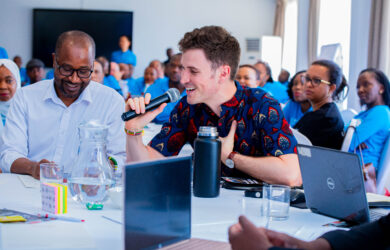Fiona Roughley writes op-ed in Sydney Morning Herald.
Gates scholar Fiona Roughley [2010] has written an opinion piece on UK penal reform for the Sydney Morning Herald.
In the article, Revolution behind bars may come at too high a price [20 November], she sets out the UK Government’s policy for reducing the number of people held in prison. She writes: “An interesting development is a proposal to introduce results-based incentives for private operators. An example would be reward payments for prison operators who reduce, through more effective rehabilitation, the recidivism rates of its inmates once released.
“Reducing recidivism through effective, targeted rehabilitation measures is good policy. As are measures designed to reduce the number of persons incarcerated on remand because of failures in the policy areas of mental health, homelessness, and drug and alcohol addiction.”
She argues, however, that although the policy is radical, the fact that one of its primary aims is to reduce costs might make for unintended consequences. She says: “‘Radical penal reform’ is to be attempted on a shoestring.The deficit may turn out to be not only the motivating rationale for this bold new attempt at penal policy, but also what undermines its prospects of success. This is revolution at, and perhaps for, a price.”
Fiona is doing an LLM [Master of Law] Law programme at the University of Cambridge. Prior to this, she worked for two of Australia’s highest institutions of government: the High Court of Australia and the Upper House of Australia’s Federal Parliament (the Senate). She says the experience she gained in both positions fed into her longstanding interest in how governments, the legal system, and advocates in general could better serve those who fall between society’s gaps in opportunities and representation. At Cambridge she is studying jurisprudence, civil liberties and human right. She plans to return to Australia next year to pursue a career as a barrister and in law reform.












